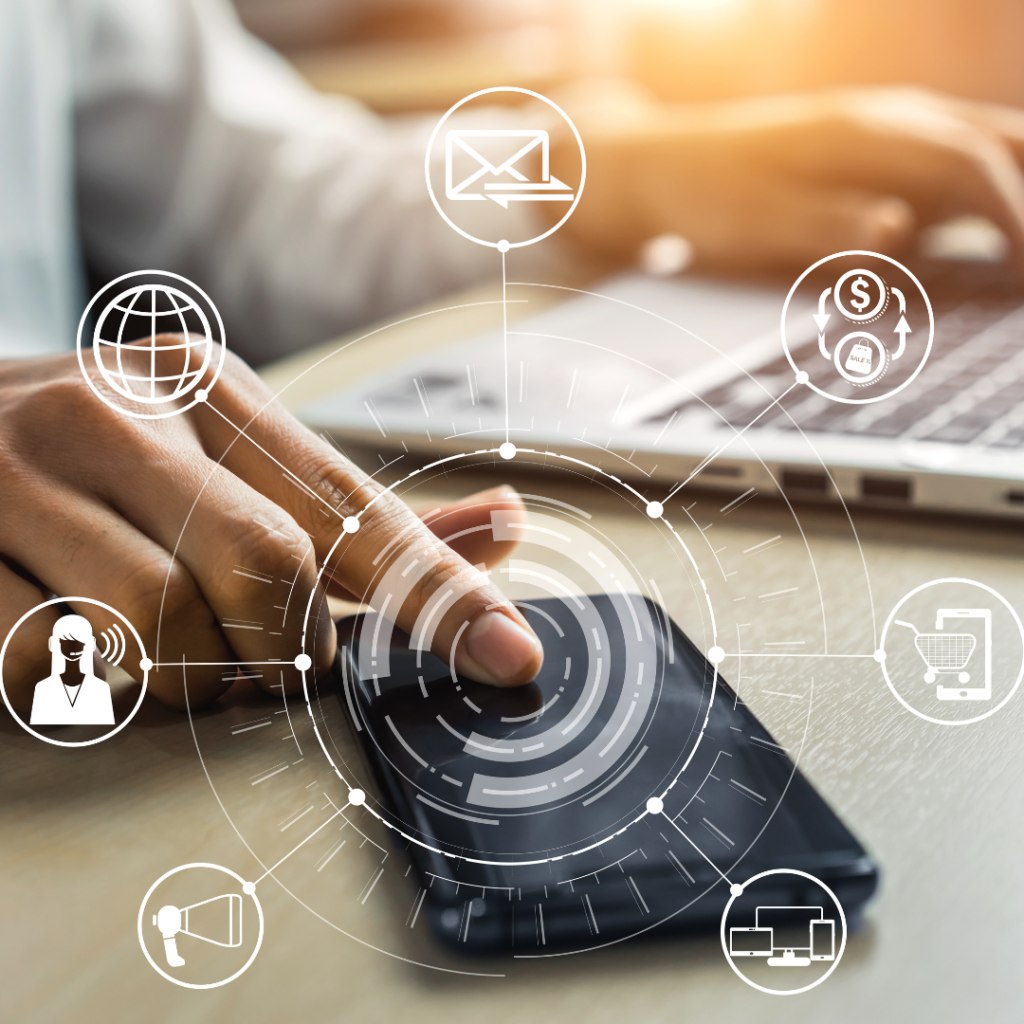In today’s digital age, mastering online safety is more important than ever. Cybersecurity practices are essential to protect personal information and prevent data breaches from various cyber threats.
This guide covers the fundamentals of online safety, including key tips and best practices to secure your online presence, protect your devices, and navigate safety online.
Whether it’s safeguarding your identity or avoiding online scams, understanding these digital safety essentials is crucial for maintaining a secure online environment.
Key Takeaways
Importance of Strong Cybersecurity Measures: Protecting online accounts through strong passwords, multi-factor authentication, and regular software updates is crucial for preventing unauthorized access, data breaches, and ensuring data privacy.
Safe Browsing and Downloading Practices: Avoid clicking on suspicious links or downloading files from unknown sources. Use tools like VPNs and antivirus software to enhance security when browsing or downloading online.
Social Media and Identity Protection: Be cautious of who you connect with on social media, keep personal information private, and regularly monitor your credit reports to protect your identity from online scams and phishing attempts.
Understanding Online Safety

What is Cybersecurity?
Cybersecurity is the practice of protecting online data from unauthorized access or misuse. It aims to protect both data privacy and prevent data breaches. Securing online accounts is crucial as they can be vulnerable to weak passwords and poor data protection, making it essential to close unused accounts and enable multi-factor authentication. Learn how to stay safe online by following internet safety tips and best practices, including how to prevent phishing attacks. Data encryption is a key method to protect online data from unauthorized access.
Understand the importance of online safety and how to protect your identity online. Additionally, following cybersecurity best practices for online banking is vital to protect personal financial information from potential vulnerabilities, especially when using public Wi-Fi.
Why is Online Safety Important?
Learn how to stay safe online by following internet safety tips and best practices.
Understand the importance of online safety and how to protect your identity online. Various cyber threats, such as malware, phishing, and hacking, make online safety crucial. It is crucial to implement measures that protect vulnerable users, particularly children, from harmful content and to foster a safer online environment. Protecting vulnerable users also involves safeguarding them from cyberbullying. Users should have greater control over their own safety through enhanced protections and safety features.
Discover how to recognize and avoid online scams and phishing
Enhancing Online Safety
Annual Online Safety Reports
IMDA is committed to enhancing transparency and empowering users to make informed decisions by publishing Annual Online Safety Reports submitted by Designated Social Media Services. These reports offer valuable insights into user privacy and shed light on how social media services manage and protect user privacy.
Reports will be submitted in the second half of 2024 and published online.
IMDA intends to release its findings on these articles as well as its comprehensive evaluation of the initiatives by Social Media Services to improve online safety.
How to Enhance Online Safety
Enhance user safety by minimizing exposure to inappropriate content, particularly for children. Effective content moderation is essential for minimizing exposure to inappropriate content. Online services play a crucial role in fostering a safer digital environment by taking measures against harmful content to create a secure online space, as mandated by IMDA’s Code of Practice for Online Safety.
Provide users with user-friendly reporting tools to report any inappropriate content or unwelcome interactions.
Ensure accountability by publishing Annual Online Safety Reports.
Secure Online Practices

Make sure you’re using a secure internet connection
Use a VPN when using public Wi-Fi to enhance network security and secure your internet connection.
Avoid carrying out sensitive transactions on public Wi-Fi. Public Wi-Fi networks can be vulnerable to cyber attacks, making it risky to perform online banking transactions.
Use a secure internet connection to protect your data. Using firewalls can further enhance the security of your internet connection.
Choose strong passwords
Emphasize the importance of password security for protecting your online accounts by using strong passwords that are hard to crack.
Avoid using the same password for multiple sites.
Use a password manager to generate and store strong passwords.
Protecting Your Devices and Data
Keep software and operating systems updated
Keep software and operating systems updated to prevent vulnerabilities. Updates often include security patches to fix vulnerabilities.
Use the latest versions of your operating system and apps to ensure you have the most recent security patches and features.
Backup data regularly
Regular data backup is essential for protecting important data. Using cloud storage is a convenient and secure method for backing up data.
Use a secure backup method to protect your data.
Use a VPN when backing up data.
Safe Browsing and Downloading
Be careful of suspicious links and where you click
Avoid clicking on suspicious links or opening attachments from unknown senders, as these can often lead to phishing attacks. URL shorteners can sometimes hide malicious links, so it’s important to verify the source.
Be cautious of links from untrusted sources.
Use a VPN when clicking on links
Be careful what you download
Be cautious of downloads from unknown sources. Using antivirus software can help detect and prevent harmful downloads.
Use a VPN when downloading files.
Regularly check your download folders for suspicious files.
Social Media Safety
Be careful about who you ‘add’ on social media and about who you meet online
Be cautious of friend requests from strangers, even if they seem friendly or have mutual friends. Fake profiles are common on social media and can pose a risk to your safety.
Think critically about why someone wants to add you on social media without getting to know you first.
Be wary of requests to move conversations to other social media platforms, especially early on
Identity Protection and Scam Avoidance

Keep Personal Information Private
Learn how to protect your personal information online by following these tips. Using data encryption can help keep your personal information private.
Understand the importance of online safety and how to stay safe online. Consider using credit monitoring services to regularly check your credit reports and ensure your information remains secure.
Discover how to recognize and avoid online scams and phishing attempts.
Monitor Your Credit Reports
Learn how to monitor your credit reports and protect your identity online. Using credit monitoring services can help you keep track of your credit reports and avoid fraudulent schemes.
Understand the importance of online safety and how to stay safe online.
Discover how to recognize and avoid online scams and phishing attempts.
Avoiding Online Scams
Learn how to stay safe online by avoiding online scams and phishing attempts. Being aware of common fraudulent schemes, such as phishing attempts, can help you avoid online scams.
Understand the importance of online safety and how to protect your identity online.
Discover how to recognize and avoid online scams and phishing attempts.
For more protection, consider these quick internet safety tips to develop healthy internet habits and guard against online scams.
Online Safety for Specific Groups
Internet Safety For Kids
Learn how to keep your kids safe online by setting parental controls and monitoring their internet usage.
Understand the importance of online safety and how to protect your child’s identity online. Addressing self harm content is crucial as part of broader efforts to protect children from various types of harmful and inappropriate content online.
Discover how to recognize and avoid online scams and phishing attempts.
Staying Up-to-Date with Online Safety
Learn More About Privacy and Security On the Internet
Learn how to stay safe online by following these tips. Reading privacy policies can help you understand how your data is used and protected. Being aware of data protection regulations is essential to stay safe online.
Understand the importance of online safety and how to protect your identity online.
Discover how to recognize and avoid online scams and phishing attempts.
For Singapore users, it is crucial to be aware of regulations aimed at online safety.
To gain further insights, you have the option to register for the Off-Grid SkillsFuture Career Transition Programme, specifically the “(SCTP) Advanced Certificate In Digital Retail“.
FAQs about Security On the Internet
What is the best way to secure my online accounts?
Secure your online accounts by using strong, unique passwords for each account, enabling multi-factor authentication, and regularly updating your passwords. A password manager can help generate and store strong passwords securely.
How can I protect my devices from cyber threats?
Keep your devices safe by regularly updating software and operating systems, using antivirus software, and avoiding the use of public Wi-Fi for sensitive transactions. A VPN can also enhance security when using public networks.
What should I do if I receive a suspicious email or link?
If you receive a suspicious email or link, do not click on it. Verify the source before taking any action, and consider reporting it as phishing. Use tools like antivirus software to scan for potential threats.
How can I keep my children safe online?
Protect your children online by setting up parental controls, monitoring their internet usage, and educating them about the dangers of sharing personal information. Be aware of the content they access and the people they interact with online.
What are some common signs of online scams and phishing attempts?
Common signs of online scams include unsolicited requests for personal information, offers that seem too good to be true, and emails or messages with spelling errors or unfamiliar URLs. Always verify the legitimacy of requests and be cautious when sharing personal details online.




